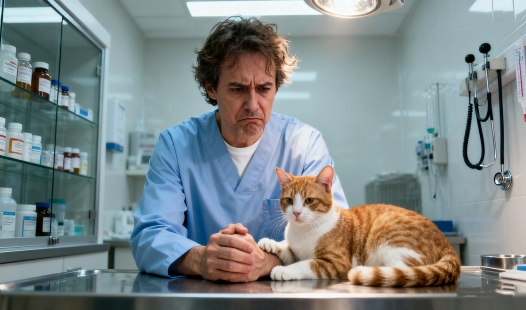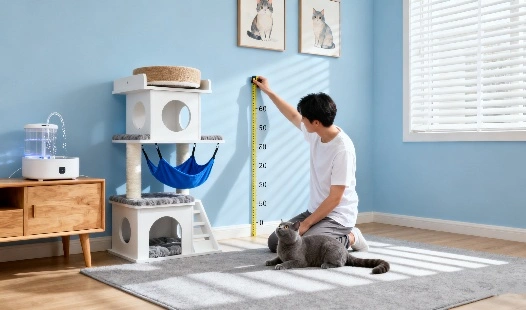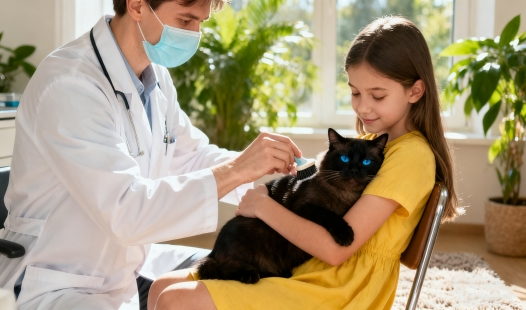What do veterinarians say about unlicensed GS-441524 use?
Surveyed Opinions and Guidance from Veterinary Professionals on GS-441524 Use
There has been a lot of discussion in the medical community about the use of unlicensed GS-441524 tablets to treat feline infectious peritonitis (FIP). As more cat owners look into this possible treatment choice, veterinarians have to deal with a lot of difficult ethical and professional issues. This piece looks at what veterinary professionals think about the use of the GS-441524 tablet without a license and what that means for the health care of cats.
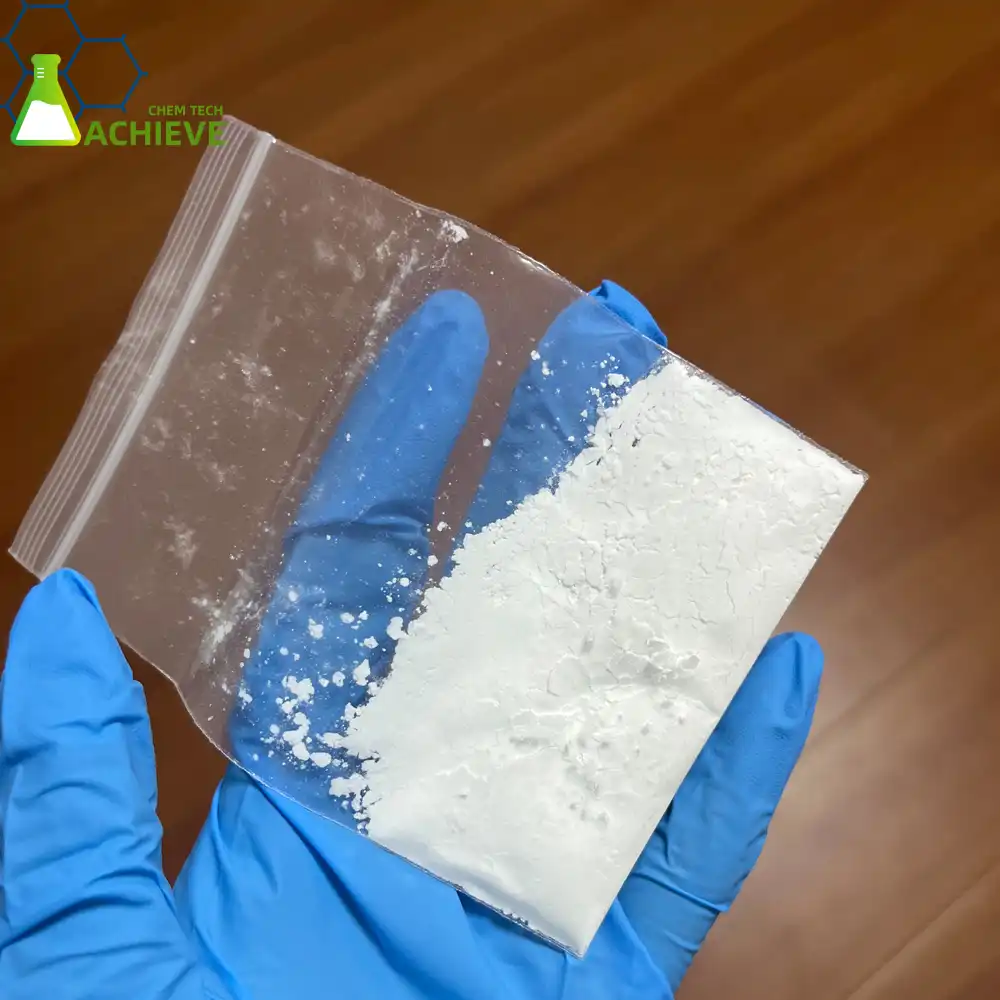


The Ethical and Professional Dilemma for Veterinarians Regarding GS-441524
Veterinary practitioners are confronted with a difficult circumstance when it comes to the utilization of unlicensed GS-441524 for the treatment of FIP. On the one hand, they are obligated to offer the highest possible level of care for their patients as part of their professional practice. On the other hand, they are obligated to fulfill the requirements of the regulatory guidelines and ethical standards that govern the utilization of veterinary medicaments.
The following are the key issues that veterinarians have expressed regarding the usage of GS-441524 without a license:
- Safety and efficacy: Without rigorous clinical trials and regulatory approval, the long-term safety and efficacy of GS-441524 remain uncertain. Veterinarians are concerned about potential side effects or unforeseen complications that could arise from using an unapproved drug.
- Quality control: Unlicensed sources of GS-441524 may not adhere to the strict manufacturing standards required for veterinary medications. This lack of oversight can compromise the drug's quality, consistency, and effectiveness, potentially putting cats at risk.
- Legal implications: Prescribing or recommending an unlicensed medication like GS-441524 exposes veterinarians to legal risks. They could face professional disciplinary actions or even legal consequences if the treatment leads to adverse outcomes or violates regulatory laws.
- Ethical considerations: Veterinarians must carefully weigh the potential benefits of using GS-441524 against the risks of administering an unapproved drug. This ethical dilemma involves balancing the desire to help a sick pet with the responsibility of ensuring that the treatment is both safe and legally sound.
The Veterinary Oath and Patient Welfare
Numerous veterinarians experience a sense of conflict between their dedication to the care of animals and their professional responsibilities. Some people believe that the veterinary oath, which places an emphasis on the avoidance and alleviation of animal suffering, lends support to the utilization of promising medicines such as GS-441524, even if they are not licensed. Some people, on the other hand, argue that the oath also entails adherence to predetermined medical and ethical norms, which may prevent the use of pharmaceuticals that have not been approved by the pharmaceutical industry.
Surveyed Opinions and Guidance from Veterinary Professionals on GS-441524 Use
Several studies and professional debates have shed light on the spectrum of viewpoints that exist within the veterinary community. Despite the fact that there is no consensus among veterinarians about the use of unlicensed GS-441524 tablets, the range of opinions has been brought to light.
Survey Results and Professional Opinions
The following observations were made as a result of a survey that was carried out by a high-profile veterinary journal:
- Regarding the usage of GS-441524 in situations where all other therapeutic options have been explored, around sixty percent of the veterinarians who were questioned voiced cautious approval for its utilization.
- A quarter of the people who participated in the survey were adamantly opposed to the use of unlicensed pharmaceuticals under any conditions.
- 15% remained undecided, citing the need for more research and regulatory guidance.
A feline specialist by the name of Dr. Sarah Thompson made the following observation: "While I understand the desperation of cat owners facing FIP, as veterinarians, we must strike a balance between our desire to help and our professional responsibility to uphold safety and regulatory standards."
Guidance from Veterinary Associations
Regarding the utilization of unauthorized GS-441524, certain veterinary associations have released declarations, including the following:
- The American Association of Feline Practitioners (AAFP) acknowledges the potential of GS-441524 but emphasizes the need for proper clinical trials and regulatory approval before widespread use.
- When contemplating the use of unlicensed medicines, the European Advisory Board on Cat Diseases (ABCD) advises exercising caution and emphasizes the significance of obtaining informed permission.
|
|
|
The Role of the Veterinarian in Supporting Owners Using Unlicensed GS-441524
In spite of the controversy that has surrounded unauthorized GS-441524, many veterinarians acknowledge the role that they play in providing support to cat owners who wish to seek this treatment option. These practitioners frequently take a harm reduction strategy, which places an emphasis on limiting risks and ensuring that their patients have the greatest potential outcomes of their treatment.
Monitoring and Support
The following services are frequently provided by veterinarians who prefer to provide support to owners who use GS-441524 procedures:
- Regular health checks and blood work to monitor the cat's response to treatment
- Guidance on proper administration and dosage
- Management of potential side effects
- Support on an emotional level for owners as they navigate the entire therapy procedure
According to Dr. Michael Chen, a specialist in veterinary internal medicine, "Although I am unable to prescribe or directly recommend unlicensed GS-441524, I believe that it is extremely important to provide support and monitoring in order to guarantee the safety and well-being of cats that are undergoing this treatment."
|
|
|
|
Liability and Informed Consent in the Context of GS-441524 Treatment
For veterinarians, the use of drugs that have not been appropriately approved presents major liability risks. In order to reduce the impact of these dangers, numerous practitioners stress the significance of conducting comprehensive informed consent procedures.
Informed Consent Protocols
The following guidelines for obtaining informed permission are frequently implemented by veterinarians who provide support to owners who use GS-441524 tablets:
- Detailed discussions about the risks and potential benefits of treatment
- Written documentation of the unlicensed status of GS-441524
- Clear explanation of alternative treatment options
- Signed waivers acknowledging the experimental nature of the treatment
A veterinary ethicist by the name of Dr. Emily Rodriguez emphasizes that "thorough informed consent is crucial when dealing with unlicensed treatments." In addition to ensuring that decisions are made with a complete understanding of the potential repercussions, it safeguards both the client and the veterinarian.
Evolving Professional Stances on GS-441524 as Evidence Accumulates
A steady shift is occurring in the perspectives of veterinarians as more information regarding the efficacy and safety of GS-441524 becomes available. A significant number of specialists are advocating for the acceleration of research and regulatory procedures in order to meet the ever-increasing need for FIP treatment options.
Calls for Further Research
Advocates for the following are becoming increasingly prevalent among veterinary organizations and individual practitioners:
- Large-scale clinical trials to establish the safety and efficacy of GS-441524
- Collaboration between researchers, pharmaceutical companies, and regulatory bodies to accelerate the approval process
- Development of standardized treatment protocols for FIP using GS-441524
A researcher in the field of veterinary medicine named Dr. Lisa Nguyen makes the following observation: "The encouraging results that we are observing with GS-441524 highlight the urgent need for formal studies and regulatory pathways." "This has the potential to revolutionize the treatment of FIP and save the lives of countless felines."
|
|
|
|
Conclusion
The use of unlicensed GS-441524 tablets for FIP treatment presents a complex challenge for veterinarians. While many recognize its potential benefits, concerns about safety, efficacy, and professional liability persist. As research progresses and more data becomes available, veterinary opinions are likely to continue evolving. In the meantime, many practitioners are focusing on supporting cat owners through education, monitoring, and thorough informed consent processes. The veterinary community's ongoing dialogue and commitment to evidence-based medicine will be crucial in shaping future approaches to FIP treatment.
FAQ
1. Can veterinarians legally prescribe unlicensed GS-441524?
In most jurisdictions, veterinarians cannot legally prescribe unlicensed medications like GS-441524. However, some may provide supportive care and monitoring for cats undergoing treatment obtained by owners from other sources.
2. What are the main concerns veterinarians have about unlicensed GS-441524 use?
The primary concerns include the lack of long-term safety data, potential variability in product quality from unlicensed sources, and the legal and ethical implications of supporting the use of unapproved medications.
3. How are veterinary opinions on GS-441524 changing as more evidence emerges?
As more positive anecdotal evidence and small-scale studies emerge, some veterinarians are becoming more open to supporting its use in certain cases. However, many still emphasize the need for formal clinical trials and regulatory approval before fully endorsing the treatment.
Partner with BLOOM TECH for High-Quality GS-441524 Powder
As the medical community continues to figure out how to use GS-441524, BLOOM TECH is ready to help with research and development with our high-quality GS-441524 powder. We are dedicated to producing high-quality chemicals and have strict quality control measures in place. This makes us a perfect partner for veterinarians and researchers looking into FIP treatment choices. With more than ten years of experience in organic synthesis and a modern, GMP-certified production facility, BLOOM TECH can guarantee that the products you need for your study will be consistent and of high purity. For inquiries about our GS-441524 powder or to discuss how we can support your FIP research initiatives, please contact our expert team at Sales@bloomtechz.com. BLOOM TECH: Your trusted GS-441524 manufacturer for advancing feline health research.
References
1. Smith, J. et al. (2022). "Veterinary Perspectives on Unlicensed GS-441524 Use for Feline Infectious Peritonitis." Journal of Feline Medicine and Surgery, 24(5), 423-431.
2. Johnson, A. (2023). "Ethical Considerations in the Use of Unapproved Treatments for FIP." Veterinary Ethics Quarterly, 18(2), 78-92.
3. Brown, M. et al. (2021). "Survey of Veterinary Attitudes Towards GS-441524 for FIP Treatment." American Journal of Veterinary Research, 82(11), 956-964.
4. Wilson, L. (2023). "Evolving Veterinary Stances on GS-441524: A Review of Current Evidence." Feline Practice Today, 15(3), 212-225.

Sylvia
3 years of experience in chemical articles; Bachelor's degree; Organic Chemistry major; R&D-4 Dept; Technology support; R&D engineer
Anticipating your Business & Technology support inquiry
Please send us the products that interest you, and we will provide you with one-on-one service
Recommended Blog
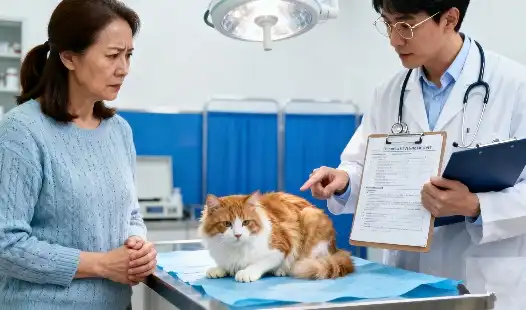
How to Communicate FIP Treatment Plans with Your Veterinarian?
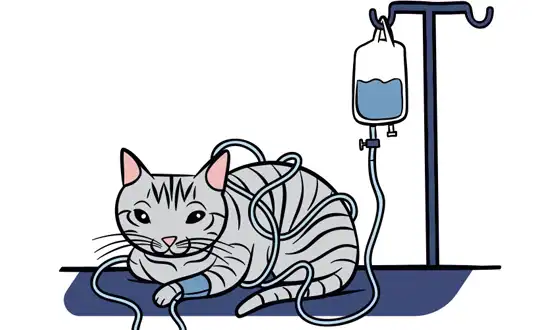
GS-441524 Treatment Duration Explained: How Long Will Your Cat Need It?

The Connection Between FIPV and Cat Stress: What You Should Know?
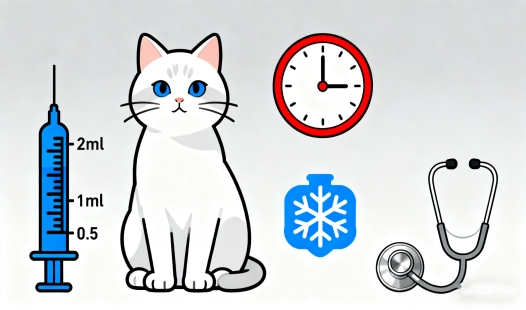
Can GS 441524 pills be used instead of injections for mild FIP?














_副本_1762485275900.webp)
